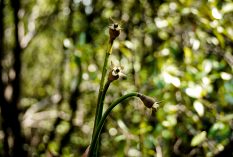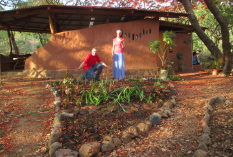If you want to embark on a sustainable safari, Tanzania is the place to be. The country is known for offering conservation-focused wildlife tours in renowned parks like Serengeti and Ngorongoro Crater. There are also plenty of eco-friendly lodges that support local communities and embrace sustainability to ensure minimal environmental impact.
Here’s a guide to sustainable safaris in Tanzania.
Book with Expert Guide
Booking with an expert guide is highly recommended for travellers on your sustainable safari in Tanzania break. These guides possess extensive knowledge of the local ecosystems, wildlife behaviour, and conservation efforts. Therefore, you can guarantee a responsible and enriching safari experience. They also understand the delicate balance between tourism and environmental preservation and can provide valuable insights on minimising ecological impact while maximising enjoyment.
Expert guides also play a crucial role in promoting sustainable practices during safaris. They educate visitors about respecting wildlife habitats, adhering to park regulations, and supporting local communities. With their guidance, you can contribute to Tanzania’s conservation efforts while minimising carbon footprint.
Moreover, expert guides offer sustainable advice tailored to your needs and interests. Whether choosing eco-friendly accommodations, participating in community-led conservation projects, or opting for low-impact safari activities, these guides provide invaluable recommendations to ensure a sustainable and rewarding journey through Tanzania’s wilderness. The expertise and commitment of expert guides to sustainability make them valuable partners for creating memorable and responsible safari experiences.
Respect the Culture and Local Tribes
The most important thing to remember when embarking on a sustainable safari is to respect the culture and local tribes. Tanzania is home to a diverse array of ethnic groups. Each tribe has unique traditions, customs, and ways of life. By respecting and engaging with local cultures, you can enrich your safari experience while also helping to preserve Tanzania’s cultural diversity.
Local tribes play a crucial role in preserving wildlife and natural resources, as many inhabit areas adjacent to national parks and reserves. Respecting their traditional territories, knowledge, and customs is essential for fostering positive relationships and promoting community-based conservation initiatives.
Furthermore, engaging with local tribes provides unique insights into traditional lifestyles, sustainable practices, and the interconnectedness between humans and nature. Participating in cultural exchanges, such as visiting villages, attending traditional ceremonies, or supporting community-run initiatives, allows you to contribute to local economies and empowerment while gaining a deeper appreciation for Tanzania’s rich cultural tapestry.
Respecting the culture and local tribes is crucial for enhancing the authenticity of your sustainable safari in Tanzania and fostering meaningful connections with the local communities.
Try Walking Safaris
A more unique and sustainable way to enjoy a safari in Tanzania is to opt for a walking safari. By choosing to explore on foot instead of taking vehicles, you can minimise your carbon footprint by reducing reliance on fossil fuels. It also helps to lower greenhouse gas emissions, which aligns with sustainable tourism principles. Unlike traditional game drives, which rely on vehicles and can disrupt animal behaviour, walking safaris provide a more intimate and eco-friendly approach to wildlife viewing.
Walking safaris also promote a deeper connection with nature and wildlife. While traversing the savannahs, lush forests, and bushlands on foot, you take in the sights, sounds, and smells of the wilderness, fostering a profound appreciation for Tanzania’s natural beauty. Additionally, walking safaris allow for closer encounters with wildlife, providing opportunities to observe animals in their natural habitat without the noise and intrusion of vehicles.
Moreover, walking safaris offer a more authentic cultural experience. You can interact with local guides and learn about traditional bushcraft and survival skills. These guides, often from local communities, share their knowledge of the land, wildlife behaviour, and conservation efforts, enriching the safari experience and fostering a deeper understanding of Tanzania’s diverse ecosystems.
From a conservation perspective, walking safaris contribute to wildlife preservation by minimising habitat disturbance and reducing the risk of wildlife collisions. By treading lightly on the land and adhering to Leave No Trace principles, you can help preserve Tanzania’s delicate ecosystems.
Sustainable Wildlife Activities
With plenty of sustainable wildlife activities to enjoy in Tanzania, it’s no wonder it’s a popular destination for sustainable safaris. One such activity is wildlife photography safaris. For this activity, you can capture stunning images of Tanzania’s diverse fauna while adhering to ethical guidelines prioritising animal welfare and habitat preservation. Another sustainable option is participatory conservation projects, where you can engage in tree planting, wildlife monitoring, or habitat restoration, contributing directly to conservation efforts.
Another popular and sustainable activity is going on bird watching safaris in Tanzania. With over 1,100 bird species, including numerous endemic and migratory birds, Tanzania is a haven for bird lovers. You can embark on guided bird-watching tours led by knowledgeable local guides who can identify and interpret the behaviour of various bird species. These tours often visit diverse habitats such as wetlands, savannahs, and forests, providing opportunities to spot a wide array of birdlife.
Additionally, you can support community-based ecotourism initiatives that promote bird conservation and sustainable livelihoods for local communities. These initiatives may include bird-watching tours led by community guides, bird habitat restoration projects, or developing bird-friendly infrastructure such as bird hides and observation platforms.
Try Fly Camping
Fly camping is an exhilarating and eco-friendly activity to enhance your sustainable safari in Tanzania. This form of camping involves setting up temporary, lightweight camps in remote wilderness areas, allowing you to experience the natural environment more intimately and with less environmental impact.
Fly camping’s low ecological footprint makes it an ideal option for those embarking on a sustainable wildlife safari in Tanzania. Since it uses portable and minimalistic camping equipment, it has a lesser impact on the environment than permanent lodges or extensive campsites. This approach aligns with sustainable tourism principles, ensuring that natural habitats remain undisturbed and wildlife can continue to thrive.
Fly camping also allows you to connect deeply with nature. As you sleep under the stars and wake up to the sounds of the wild, you gain a profound appreciation for Tanzania’s pristine landscapes and diverse wildlife. This immersive experience often includes other sustainable wildlife activities, such as guided walking safaris and bird watching.











